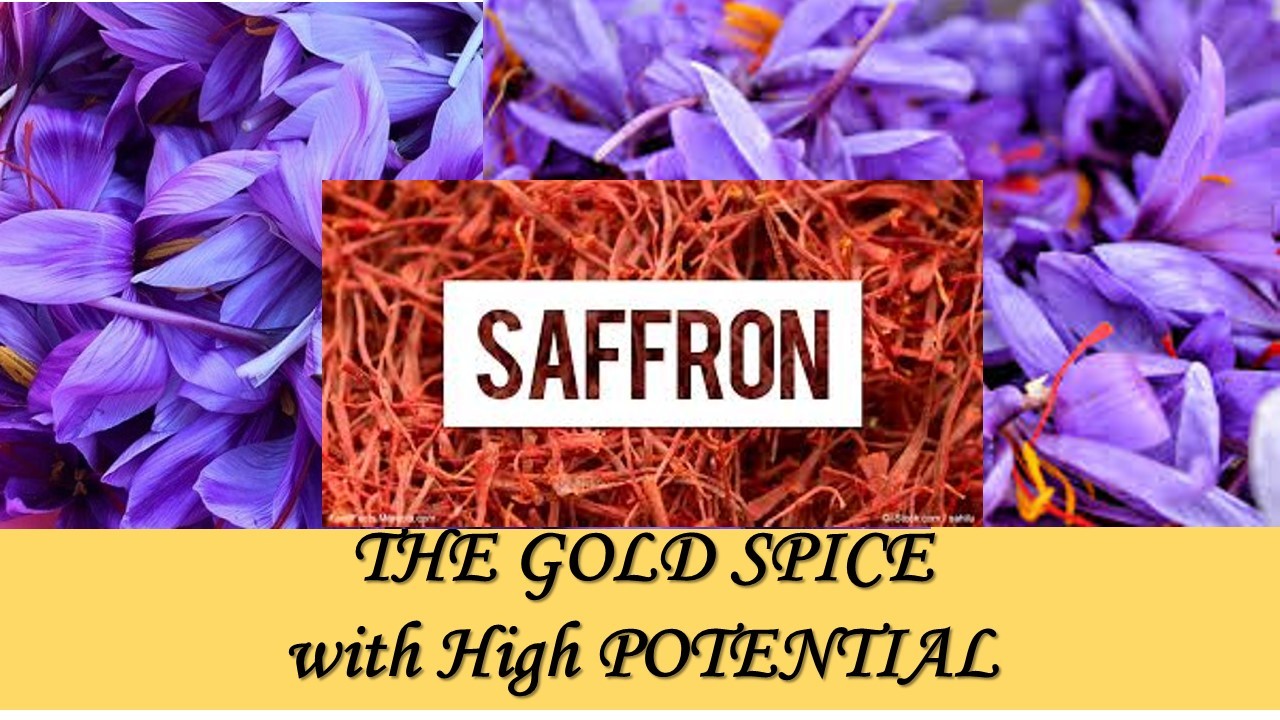
Saffron is a powerful spice high in antioxidants. It has been linked to health benefits, such as improved mood, libido, and sexual function.
Have you ever wondered why saffron is one of the most expensive spices in the world? Known as “red gold ,” it is one of the most valuable spices in the world. Not only is it prized for its vibrant color and distinctive flavor, but also for its countless health benefits . Extracted from the flower of the Crocus sativus , this spice has been used for centuries in traditional medicine and a variety of culinary dishes. Below, we will explore in detail why saffron is so expensive and what benefits it can bring to your health.
The process of growing and harvesting saffron
The high price of saffron is largely due to its laborious cultivation and harvesting process . Each Crocus sativus flower produces only three saffron stigmas, which must be hand-picked. Approximately 75,000 flowers are needed to obtain just one pound of saffron, which explains why it is so expensive. Furthermore, Crocus sativus blooms only once a year and over a very short period, which further increases its value.
Nutritional components of saffron
Saffron is rich in a variety of vitamins and minerals essential for the human body. It contains vitamin A, B3, folate, vitamin C, calcium and potassium . Although used in small quantities, saffron can provide a significant source of manganese and vitamin C. These nutrients play a crucial role in the proper functioning of the immune and nervous systems.
Antioxidant and anti-inflammatory properties of saffron
One of the most notable properties of saffron is its high content of flavonoids , compounds known for their powerful antioxidant and anti-inflammatory effects. These compounds help protect the body’s cells against oxidative damage, reducing the risk of developing chronic diseases such as cancer . The flavonoids present in saffron have been shown to be effective in preventing rectal and liver cancer , among others.
Benefits of saffron for memory and cognitive function
Saffron has also been studied for its ability to improve memory and cognitive function . The antioxidants present in this spice help reduce inflammation in the brain and protect nerve cells from damage. Research suggests that regular consumption of saffron may improve memory and learning ability, and even help prevent neurological diseases such as Parkinson’s .
Saffron as a natural mood enhancer
Feeling a little down or stressed ? Saffron could be the natural solution you need. Studies have shown that this spice can help improve mood and fight depression. This is due to compounds like crocin and safranal , which act as natural antidepressants , increasing serotonin levels in the brain.
The impact of saffron on eye health
As we age, our eyesight can deteriorate, but saffron can help maintain eye health . Saffron has been shown to reduce inflammation in the eye, which lowers the risk of developing eye diseases such as age-related macular degeneration . This benefit is largely due to the antioxidants present in saffron, which protect the cells of the retina.
Promoting heart health with saffron
Heart disease is one of the leading causes of death worldwide, and saffron could play a crucial role in preventing cardiovascular disease . Saffron has been shown to help reduce cholesterol and LDL (bad cholesterol) levels while improving HDL (good cholesterol) levels. These effects may help reduce the risk of heart attacks and strokes .
Side effects and precautions when consuming saffron
Although saffron is safe to consume in small amounts, consuming large amounts can cause side effects. According to research, 1.5 grams per day is considered a safe dose. However, consuming more than this amount can lead to side effects such as dizziness, fatigue, anxiety, headaches, and nausea . In extreme cases, consuming more than 5 grams per day could cause serious effects such as vomiting and bloody diarrhea .
It is important for people who are pregnant, breastfeeding, or taking certain medications to consult their healthcare provider before using saffron. This is especially crucial for those who are taking blood-thinning medications, as saffron may increase the risk of bleeding.
How to use saffron in your daily life
Saffron is a versatile spice that can be used in many ways to reap its benefits. Here are some ideas:
In the kitchen: Saffron is a popular ingredient in Middle Eastern and Mediterranean dishes such as curry, paella and risotto . It can also be used in desserts such as cakes and puddings. Add a few strands of saffron to rice, soups and stews to give them a unique flavor and color.
In tea: Make a soothing tea by steeping saffron threads in hot water. This tea is not only delicious, but it is also beneficial for your health.
As a supplement: Saffron supplements are available in capsules, allowing you to enjoy its benefits conveniently.
In skin care: Mix saffron with honey or milk to create a nourishing face mask that brightens and improves the appearance of skin.
[This topic may interest you: Durian: The world’s stinkiest fruit that is considered a delicacy ]
Tips for buying high-quality saffron
If you decide to incorporate saffron into your diet or personal care routine, it is important to make sure you purchase a high-quality product. Here are some tips:
Deep red color: High quality saffron has deep red threads with a slight orange tip.
Strong aroma: Saffron should have a strong and pleasant aroma.
Avoid adulteration: Buy saffron from trusted spice shops to avoid adulterated products.
Conclusion
Saffron is an invaluable spice that not only enriches your dishes but also offers numerous health benefits. Whether you use it in cooking, as a supplement, or in skin care, saffron is a natural and effective way to support your well-being. Adding a touch of red gold to your life could be just what you need to improve your health and happiness.







